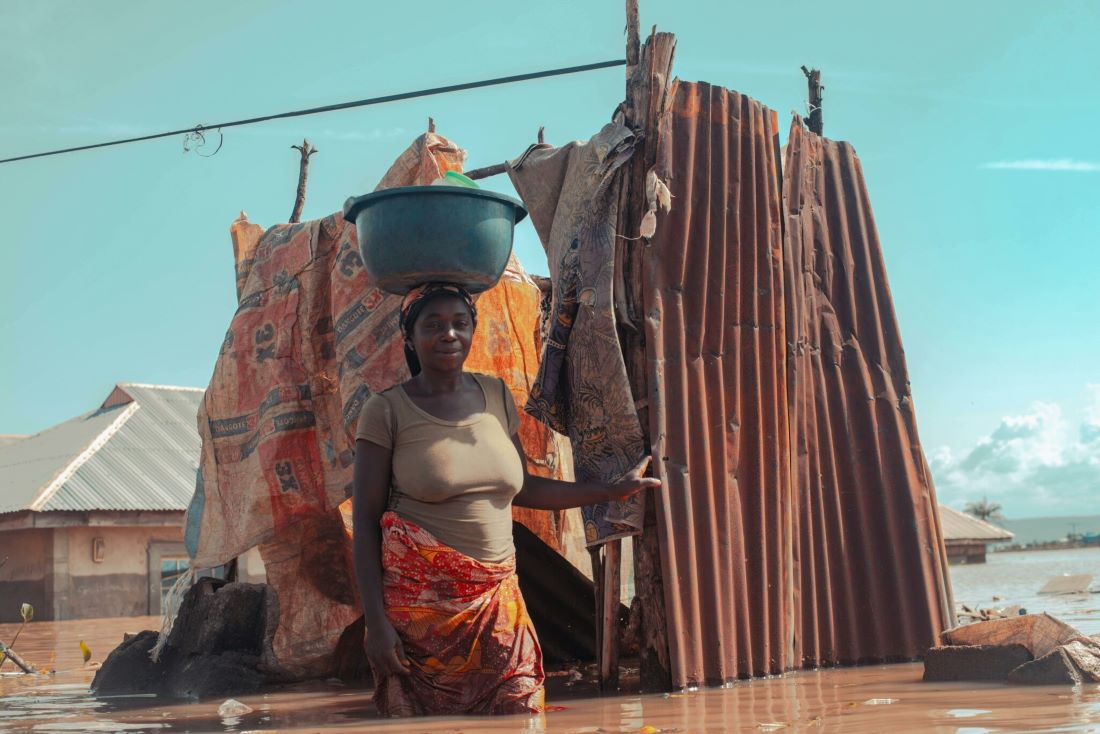
NEW YORK, November 15, 2024 — With the annual United Nations Climate Change Conference (COP29) underway in Azerbaijan, leaders’ conversations around financing must result in concrete commitments for the world’s most climate-vulnerable communities, said Doctors Without Borders/Médecins Sans Frontières (MSF).
The people and places least responsible for the emissions that have led to the climate crisis are suffering the worst consequences and, despite repeatedly asking for support, have not yet received the funding they need to adapt to their new realities and mitigate the impacts of climate change.
The U.S. Must Lead on Climate Finance
As one of the world’s largest greenhouse gas emitters, the United States must contribute its fair financial share to support low- and middle-income countries in mitigating and adapting to climate change. The US must also do more to ensure the timely development and implementation of an effective and equitable loss and damage fund.
This fund must provide new, predictable, consistent, and adequate support to the world’s most climate-vulnerable people and places to help them address the unavoidable future impacts of climate change as well as compensate them for past loss and damage.
Additionally, the US and other high-income countries must work closely with affected communities, countries, and civil society advocates to ensure this fund truly addresses people’s needs and provides tailored solutions that will work for them.
MSF treats people every day for medical issues resulting from the impacts of climate change—from malnutrition in the wake of natural disasters in Madagascar, to dehydration due to intense heat waves in Pakistan, to an increase in mosquito-borne diseases like dengue fever in Honduras.
The health impacts of climate change are projected to increase over time as are resulting health inequities, but the most devastating impacts may yet be avoided if world leaders take action now to ensure funding and support is more equitably available.
Avril Benoît, chief executive officer of MSF USA, said:
“The climate crisis is having devastating consequences on people’s mental and physical health—and these consequences are not distributed equally. In our waiting rooms in humanitarian settings, conflict zones, and rural areas cut off from medical care, we are seeing patients who are paying with their health and their lives for a problem they did not create.
“As one of the world’s largest greenhouse gas emitters, the US has played an outsized role in the situation we now find ourselves in: a world where more parents live in fear that their children might die of malaria or cholera, where communities prepare for more frequent and intense natural disasters knowing their efforts might be in vain, and where communities are torn apart by conflict and competition over fewer resources like water and food.
“It’s not enough for the US to mitigate greenhouse gas emissions. It must also invest in initiatives that help communities adapt to their new realities and take concrete steps to ensure that those least responsible for climate change have the funding they need to cope with its unavoidable impacts and make up for what they’ve already lost, including their health, infrastructure, and livelihoods.
Climate change is a collective problem that requires a collective response
As countries meet this month at COP29 to discuss climate finance, they must make sure communities being hit the hardest—as well as health and humanitarian leaders in them—have a seat at the table. Involving communities in solutions and ensuring proper financial support is key in building resilience and addressing the consequences of climate change.

This also means attaching access conditions when companies create key climate technologies with the help of taxpayer money, as well as taking additional steps to make sure they’re available worldwide.
“World leaders have failed time and time again to turn their words from previous COPs into tangible funding and support for affected communities, and time is running out. Communities that have been irreparably altered by climate change should not have to appeal year after year for support from wealthier countries like the US that have fueled the climate crisis. This year, providing financial support to places hit hardest by climate change can’t just be another agenda item to be checked off the list.”




Accounts market https://buyaccountsmarketplace.com